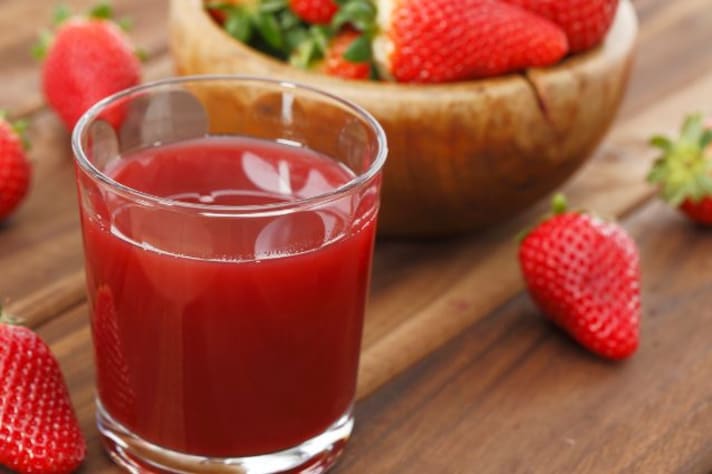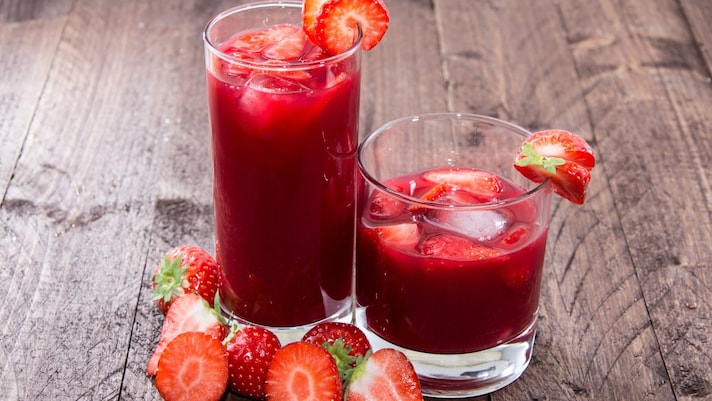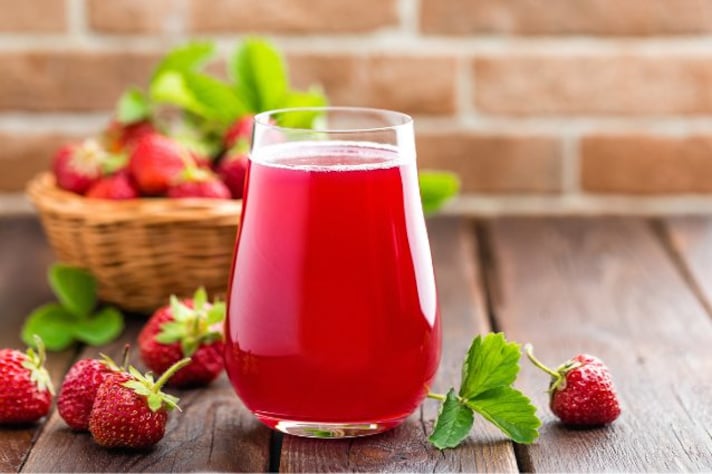Here’s Why You’ve Never Seen Grocery Stores Selling Strawberry Juice
Despite their popularity, strawberry juice is absent from supermarkets due to low juice yield, delicate flavor, short shelf life, and high production costs. While it's okay to drink, it's usually made from concentrate. You can make it at home by blending and straining fresh strawberries, but it should be consumed within a few days due to its short shelf life.
;Resize,width=742;)
The juice aisle at the supermarket is as colorful as it is varied, featuring a vast array of fruits in many shapes and sizes. Yet, as some TikTokers have pointed out, one of the most beloved fruits seems to always be missing: strawberries. Despite their popularity in frozen yogurt and yogurt sections, supermarkets do not sell strawberry juice. Once you notice it, you can't unnotice it. There's a reason, though. Let's find out why.
High Water Content and Low Yield
Strawberries have a high water content, but they produce a surprisingly low yield of juice when pressed. The majority of a strawberry's weight is water, but this water is locked within the fruit's structure and isn't easily extracted as pure juice. When strawberries are pressed, much of what is extracted includes pulp and seeds, resulting in a juice that is more like a thick puree rather than a clear, drinkable liquid.

Delicate Flavor Profile
Strawberries have a delicate flavor that can be easily lost or diluted when turned into juice. The natural sweetness and subtle tartness of strawberries don't always translate well into liquid form, often requiring the addition of sugar or other flavorings to make the juice taste right. This compromises the natural flavor that strawberry lovers enjoy, making it less appealing as a standalone juice.
Stability and Shelf Life
Strawberry juice has a short shelf life and is prone to quick spoilage. The natural sugars and acids in strawberries make their juice highly perishable, requiring pasteurization and preservatives to extend its shelf life. Even with these measures, strawberry juice tends to separate and lose its freshness faster than other fruit juices, making it a less practical product for supermarkets to stock.

Economic Factors
Producing strawberry juice on a commercial scale is not cost-effective. The low juice yield, combined with the need for additional processing and preservatives, makes it an expensive product to produce. Consumers may not be willing to pay a premium for strawberry juice when other more affordable and stable fruit juices are available. This economic factor contributes to its absence from store shelves.

Is It Okay to Drink Strawberry Juice?
Yes, it is okay to drink strawberry juice, but it is typically not found in its pure form. When available, it is often made from strawberry concentrate, which involves extracting juice, removing water content, and later rehydrating it. This process helps in stabilizing the flavor and extending the shelf life. Strawberry juice, when made this way, is often mixed with other fruit juices to enhance its taste and stability.
Can You Make Strawberry Juice at Home?
Yes, you can make strawberry juice at home. To do this, blend fresh strawberries and then strain the mixture to remove the pulp and seeds. Homemade strawberry juice should be consumed quickly, as it has a short shelf life of just a few days when stored in the refrigerator. Adding a bit of lemon juice can help preserve it slightly longer and enhance the flavor.
;Resize,width=767;)
;Resize,width=712;)

;Resize,width=712;)
